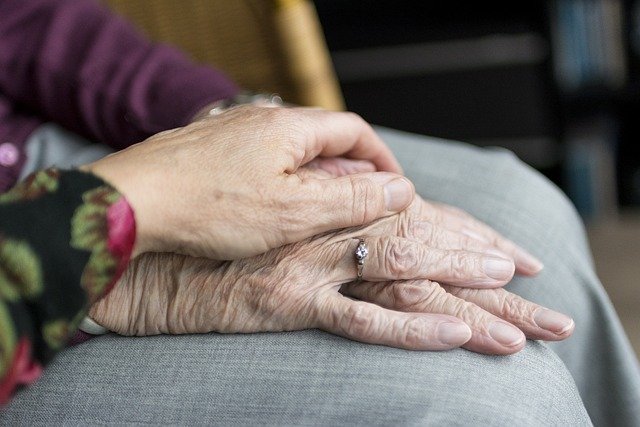Understanding Home Care Services: Support for Seniors and Their Families
Curious about elder care at home? Home care support offers practical help with daily needs, mobility, and personal care while also providing companionship. Learn how these services can enhance quality of life for seniors and ease responsibilities for families.

What Are Home Care Support Services For Seniors?
Home care support services encompass a wide range of assistance options designed specifically for seniors’ unique needs. These services typically include personal care assistance such as bathing, dressing, and grooming; medication management to ensure prescriptions are taken correctly and on schedule; and mobility support to help seniors move safely around their homes. Many providers also offer specialized care for conditions like dementia, Parkinson’s disease, or post-surgical recovery.
Additionally, home care services often include essential household tasks like meal preparation, light housekeeping, laundry, and transportation to medical appointments or social activities. The scope of services can be adjusted based on the individual’s changing needs, creating a flexible care solution that evolves over time. This adaptability makes home care particularly valuable for seniors whose requirements may fluctuate due to health conditions or recovery processes.
How Do Personalized Home Care Services Benefit Seniors?
Personalized home care services offer numerous advantages that directly impact seniors’ quality of life. Perhaps most significantly, these services enable older adults to remain in familiar surroundings, maintaining their sense of independence and personal dignity. Research consistently shows that aging in place can positively affect mental health and emotional wellbeing, as seniors maintain connections to their communities and personal histories.
Customized care plans address each individual’s specific needs rather than applying a one-size-fits-all approach. This personalization extends to scheduling flexibility, allowing seniors to receive care when they need it most—whether that’s a few hours weekly, daily assistance, or round-the-clock support. Care providers can establish meaningful relationships with their clients, offering not just physical assistance but also companionship and emotional support that combats social isolation, a significant concern for many older adults.
What Benefits Do Home Care Support Services Provide For Families?
Home care services offer substantial relief for family members who might otherwise shoulder the entire caregiving responsibility. This professional support helps prevent caregiver burnout—a common issue among family members attempting to balance caregiving duties with their own work, family responsibilities, and personal lives. By sharing caregiving responsibilities with trained professionals, family members can focus on quality time with their loved ones rather than just completing tasks.
Professional caregivers bring specialized knowledge and skills that most family members don’t possess, particularly for complex medical conditions. This expertise provides peace of mind, knowing that loved ones are receiving appropriate care from trained individuals who can recognize and respond to potential issues before they become serious problems. For families living at a distance from their senior relatives, home care services offer essential local support and regular updates about their loved one’s condition and needs.
How Are Home Care Services Customized For Different Needs?
Home care services can be tailored to address various levels of need, from minimal assistance to comprehensive support. The customization process typically begins with a thorough assessment conducted by healthcare professionals who evaluate the senior’s physical abilities, cognitive function, home environment, and specific health concerns. Based on this assessment, a personalized care plan outlines which services are needed, how frequently, and specific approaches that will work best for the individual.
For seniors with relatively minor needs, services might focus on household management, transportation, and occasional personal care assistance. Those with more significant requirements might receive help with daily living activities, medication management, and specialized care for specific conditions. As needs change—whether gradually due to aging or suddenly due to health events—care plans can be adjusted accordingly, ensuring services consistently match current requirements.
What Types of Home Care Providers Are Available?
Home care services are delivered through various provider types, each offering different levels of care and specialization. Understanding these options helps families make informed decisions about the right type of support for their loved ones.
| Provider Type | Services Offered | Key Features/Benefits |
|---|---|---|
| Home Health Agencies | Skilled nursing, therapy services, medical monitoring | Medicare/insurance coverage possible, licensed medical professionals |
| Non-Medical Home Care Agencies | Personal care, companionship, household help | Flexible scheduling, no medical prescription needed |
| Independent Caregivers | Customized care based on agreement | Often lower cost, direct relationship with caregiver |
| Specialized Memory Care Services | Dementia-specific care, safety monitoring | Staff trained in cognitive impairment care |
| Geriatric Care Management | Care coordination, advocacy, family support | Professional oversight of all aspects of elder care |
How Do You Evaluate Home Care Quality and Compatibility?
Selecting the right home care service involves careful evaluation of provider quality and compatibility with the senior’s specific needs. Start by verifying basic credentials like proper licensing, insurance, and background checks for all caregivers. Request references from current or previous clients and take time to contact them for honest feedback about their experiences with the provider.
Beyond credentials, assess how the provider approaches caregiver matching, as the personal relationship between caregiver and client significantly impacts care quality. Quality providers take time to understand the senior’s personality, preferences, and lifestyle, matching them with caregivers who will be good personal fits. Communication protocols are equally important—understand how the agency handles schedule changes, caregiver absences, emergency situations, and regular updates to family members. Finally, evaluate whether the provider offers a comprehensive assessment process and develops detailed care plans that address all identified needs.
This article is for informational purposes only and should not be considered medical advice. Please consult a qualified healthcare professional for personalized guidance and treatment.




